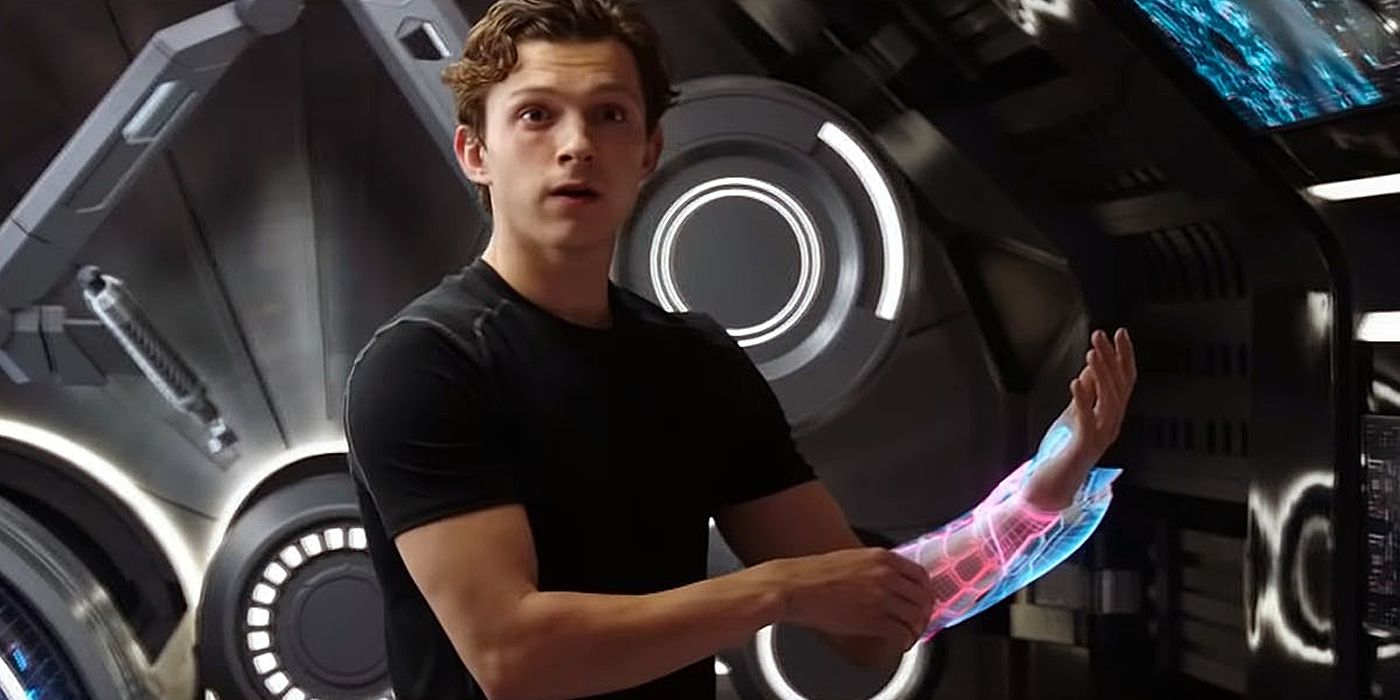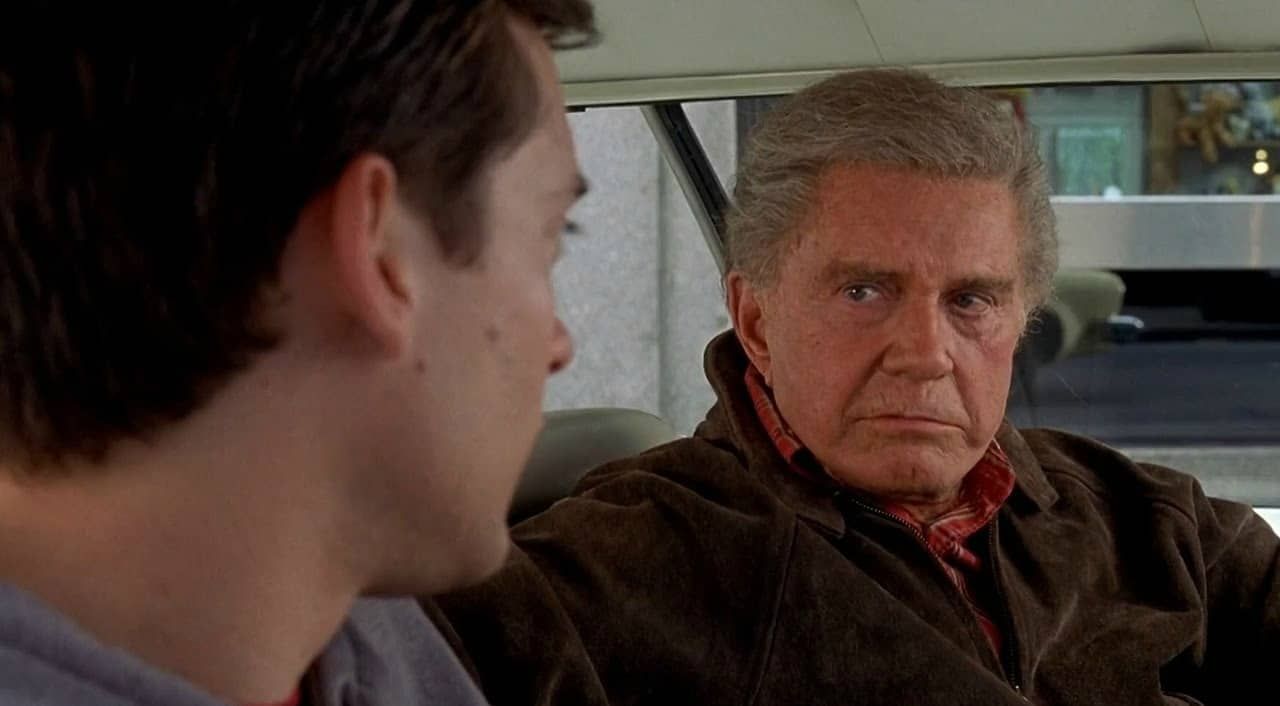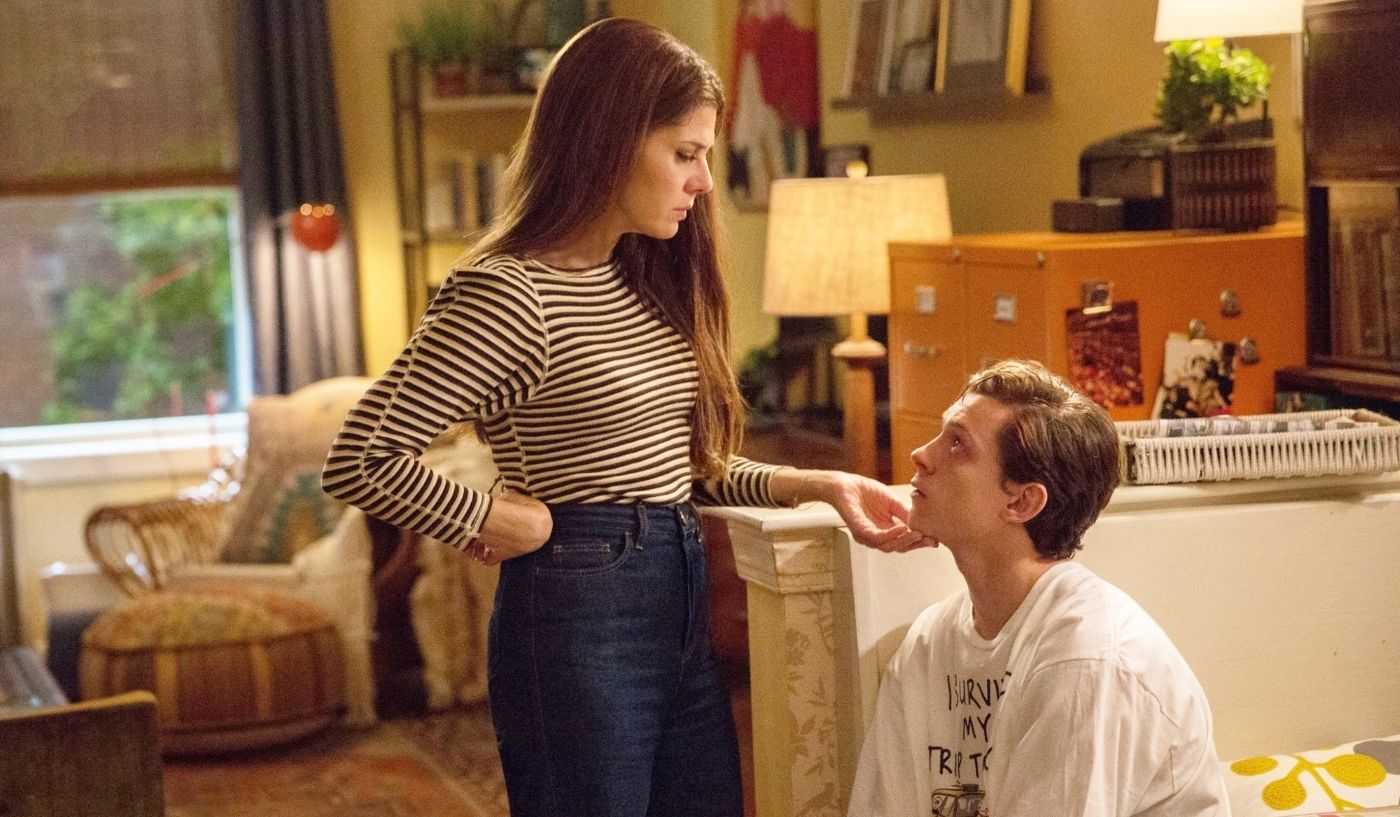WARNING: The following contains spoilers for Spider-Man: Far From Home, in theaters now.
When Spider-Man: Homecoming was released in 2017, fans and critics fell head over heels for director Jon Watts' take on Marvel's web-slinger. It was a refreshingly small-stakes blast, but it lacked the one thing it needed most: a vision of Peter Parker that actually lives up to the source material. Thankfully, Spider-Man: Far From Home is nearly a complete reversal, spring-boarding off the tragedy of Avengers: Endgame to create a fully realized, and wholly new, wall-crawler.
Between its fun style and star Tom Holland's magnetic performance, Homecoming was easy to like, but Peter lacked the depth of previous iterations. It worked well as an extension of the Marvel Universe, and the depiction of his life as a high-school student was brilliant, but by focusing primarily on Peter’s relationship with Tony Stark, it failed to deliver emotional depth. By looking to the history of the character, both on and off the big screen, Watts, with writers Chris McKenna and Erik Sommers, finally gave the Marvel Cinematic Universe the Spider-Man it deserves.
In 2002, Sam Raimi’s Spider-Man was a smash hit because it fired on all cylinders. Raimi's dynamic direction, combined with a story of hope buried beneath a layer of tragedy, created the perfect movie for the moment. Around the end of the first act, Peter Parker's Uncle Ben is murdered, and he blames himself. By focusing Peter’s story on his growth after Uncle Ben's death, it laid the groundwork for the character's emotional arc across the trilogy. Though Peter continued to crack jokes and find hope in the darkness, it almost acted as a veil for the despair that would plague him otherwise.
Although Peter’s history with Uncle Ben clearly happened in some way in the MCU, it's mostly glossed over. Despite some references to a sad past, and a briefcase marked "BFP," Peter’s backstory goes unaddressed over five films featuring the character. Everyone involved likely wanted to avoid the issues with Marc Webb’s The Amazing Spider-Man, which rehashed the story, the decision to skip over it entirely undoes a central part of what makes Spider-Man so great.
Additionally, Raimi's vision, as with most other adaptations, took Uncle Ben's death as Peter's motivator. Just hours before his death in the first Spider-Man film, Ben echoed his comic book counterpart's most famous line, "With great power comes great responsibility." Peter takes that to heart, and although he doesn't always want to be the superhero, he acknowledges his abilities give him a responsibility to help people. While Tom Holland’s Peter echoes that sentiment in Captain America: Civil War, something is lost in translation on the way to Homecoming, and it's kind of dropped from the character.
The baffling decision to bypass the emotional fallout of Uncle Ben's death led directly to losing the character's most interesting dramatic motivator: the internal battle between power and responsibility. Now, Homecoming still has plenty of drama to supplant that, but it never quite clicks into place. Peter's relationship with Liz and the surprise of Adrian Toomes (aka The Vulture) as her father played out in a fun, roller-coaster ride of a movie, but it lost the gravity that made Raimi's movies so effective.
In 2015, when work began on Spider-Man: Homecoming, the public had largely grown tired of origin stories. Ant-Man had just come out, and The Amazing Spider-Man 2 had under-performed at the box office the year before. So, it's likely they chose to dodge Peter's relationship with Uncle Ben's tragedy because they didn't want to completely redo a story that had already been told twice before.
Nevertheless, they could have used everyone's knowledge of Peter's past as an emotional groundwork for the story they told. There's even precedent in the MCU, as The Incredible Hulk opens with a title sequence that recaps Bruce Banner's familiar story. Homecoming didn’t need to take that route, and could have looked to the brilliant 2008 animated series, The Spectacular Spider-Man, for influence. Like last year’s Spider-Man: Into the Spider-Verse, it basically assumes you already know Spider-Man's origin, and goes from there.
RELATED: Spider-Man: Far From Home Fails to Move Peter Parker Out of Tony Stark's Shadow
They both still acknowledge the inherent tragedy to Peter's story and the dramatic tension of grappling with the responsibility of being a hero, but don't beat you over the head with Uncle Ben's death. Instead, Jon Watts settled for a middling, shallow interpretation of the character his first time around, a movie that delivered thrills and laughs and not much else.
Thankfully, Watts and co. completely stepped their game up with the sequel, and delivered a glorious return to form in Spider-Man: Far From Home. It's a triumphant return to a recognizable interpretation of Peter Parker as Spider-Man, with enough extensions and adjustments to make it feel like a breath of fresh air. In Tom Holland's fifth performance as the character in the span of only three years, the best portrayal of Spider-Man is finally given a script to fit the talent.
In one fell swoop, the movie solves all of the issues and obstacles placed in its way by Homecoming with the death of Tony Stark. Peter struggles to overcome his mentor's tragic death, but he's also coming to terms with how to fill his shoes. His internal journey throughout the story heavily revolves around learning to move on and live in a way that would've made Tony proud.
That's not to say Far From Home is remotely as dramatic as Avengers: Endgame, but it provides a necessary grounding point for the otherwise cheerful character. It doesn't remove any focus from Peter's relationship with his classmates or his life in high school, instead of lending additional weight to the whole story. On top of this, Peter has been left a technological gift from Tony that forces Peter to reckon with his own responsibility to help people and brings the character full circle.
By basically replacing the death of Uncle Ben with the sacrifice of Tony Stark as Peter's emotional grounding, Spider-Man: Far From Home may alienate some die-hard comic absolutists, but it works so well that it's easy to forgive. Director Tom Watts followed up a fairly weak outing for the webhead with one of his absolute best, along with this bold declaration: this iteration of the character is in firmly MCU, and he’s here to stay. He’s not just a friendly neighborhood Spider-Man anymore, and that might just be a good thing.
Directed by Jon Watts, Spider-Man: Far From Home stars Tom Holland, Samuel L. Jackson, Zendaya, Cobie Smulders, Jon Favreau, JB Smoove, Jacob Batalon and Martin Starr, with Marisa Tomei and Jake Gyllenhaal.




